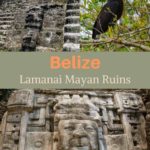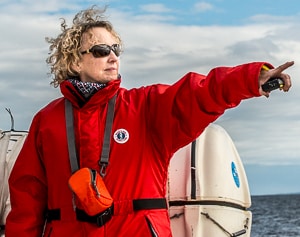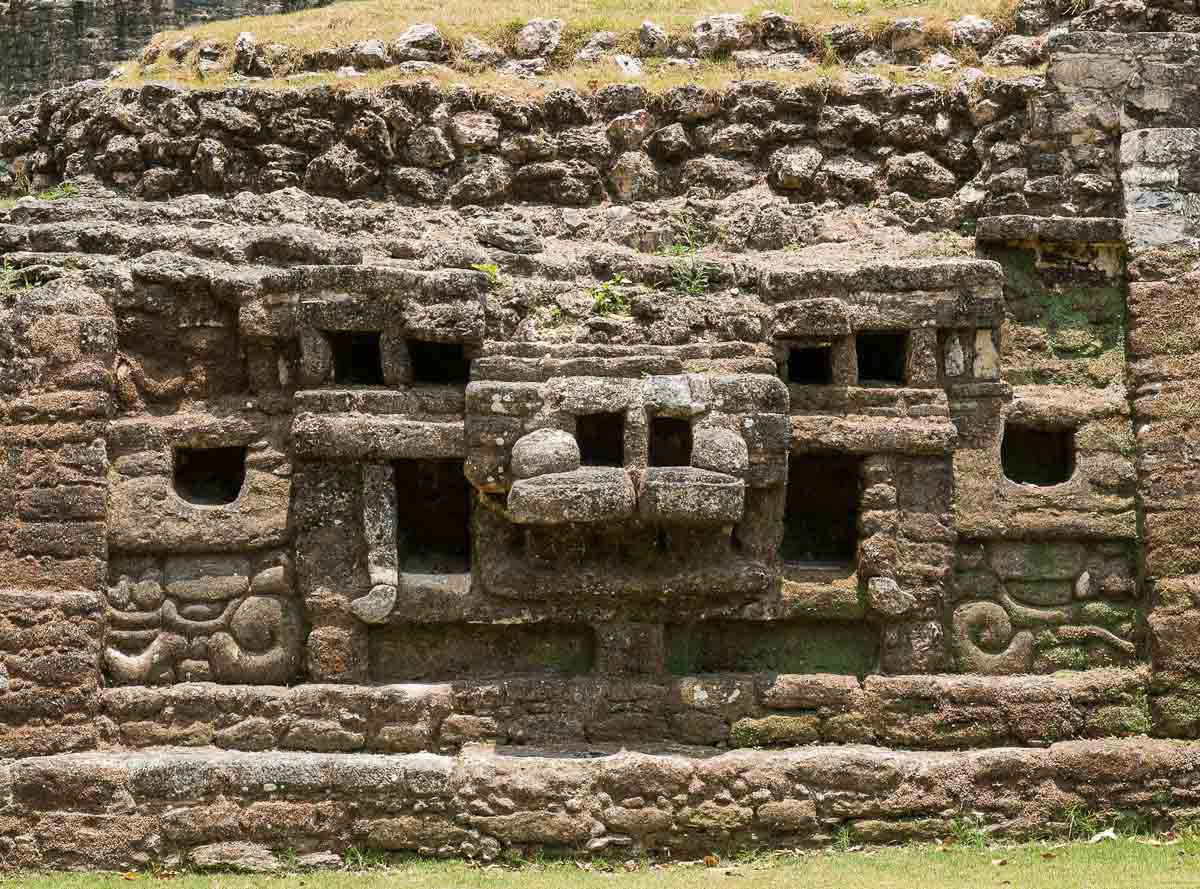
One of our two adventures in Belize was heading to the Mayan city Lamanai by river. Booked through our hotel, the Black Orchid Resort, the day trip was a great balance of jungle river tour of flora and fauna, plus a leisurely walk through the ruins of Lamanai with just four others.
Our guide, Carlos, of Lamanai EcoTours, made seven. We met up with him and our fellow travelers at 9 a.m. on the New River near the village of Carmelita, a bit less than an hour’s drive from our hotel. We settled in the small white boat fitted with a blue canopy, bench seating along the sides, and a 75 HP motor. That was enough for Carlos to show off his knowledge of the river and his need for speed.
On the way up river (a southerly direction in this case), Carlos was a terrific wildlife spotter. The first slowdown was for a dozen long-nose bats, parked on the underside of an overhanging tree. It was our first rush, too, as the bats were startled by the close camera sounds, and blew right over our heads to another tree. We saw several crocodiles up close through crystal clear water, lots of flowering air plants hanging from trees and vines, and dozens of species of birds. Carlos was especially excited about finding a Black Hawk, a Fork-tailed Flycatcher, a Kingfisher, and several Great Kiskadees. We also enjoyed plenty of Jesus Christ Birds (they walk on water), Cormorants, Herons, and Black Vultures.
Twenty-five miles later, the New River widens into a deep lake, and from the center the top of one temple juts out of the tropic forest. The Lamanai site can be accessed by land somehow, but I’m not sure visitors generally do that, or why they would. At the simple dock we unloaded coolers for lunch, set them in the picnic area, quickly toured a small museum that houses timelines, maps, and a few original stones from the site for safekeeping.
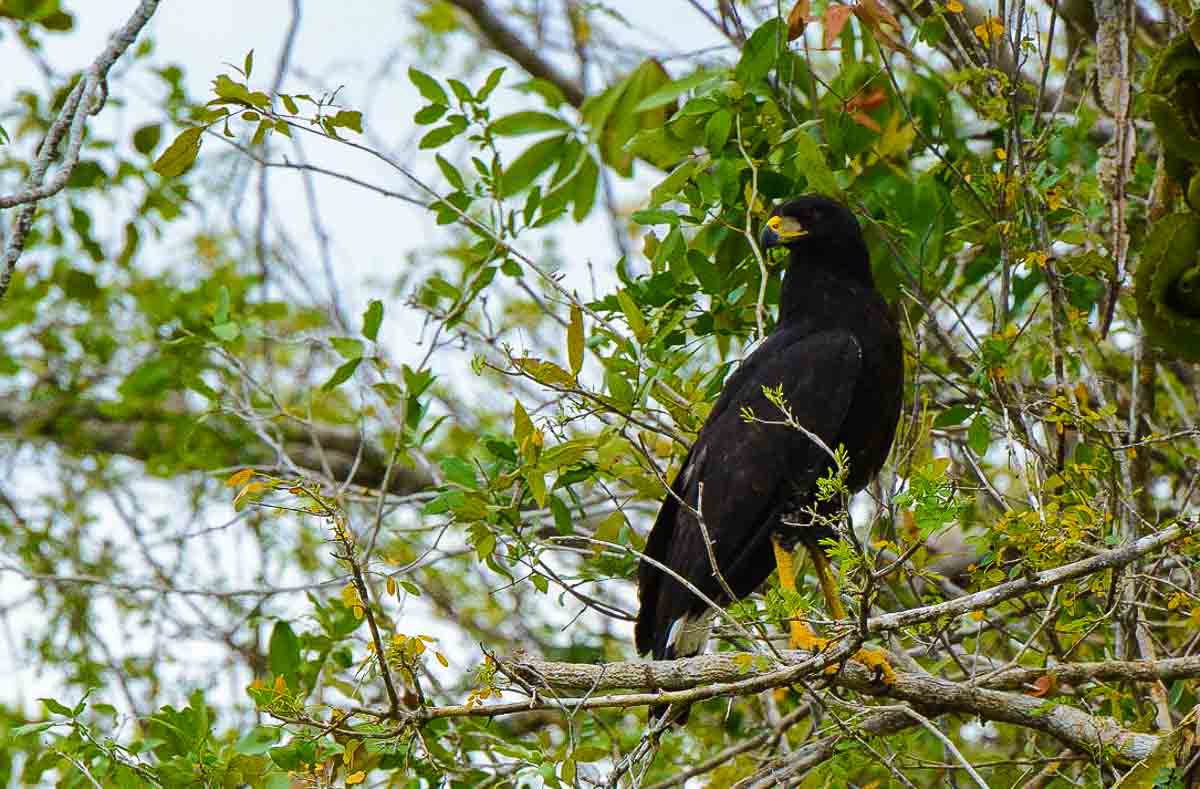
Lamanai is different from other Mayan sites in that it is organized along the river rather than around a central plaza. Although it is about 10 miles long and a half-mile wide, the excavated portion is manageable, and all the temples can be climbed. The Mask Temple has the largest carvings we’ve seen, with heads about three meters square. A fiberglass coating protects the originals and makes the pyramid a living monument even after all these years. The High Temple is, yes, the highest, and affords views of the lake. The Jaguar Temple is unique, too, for it’s display of jaguar faces defined by gaps and holes in the rock foundation on both sides of the center stairs.
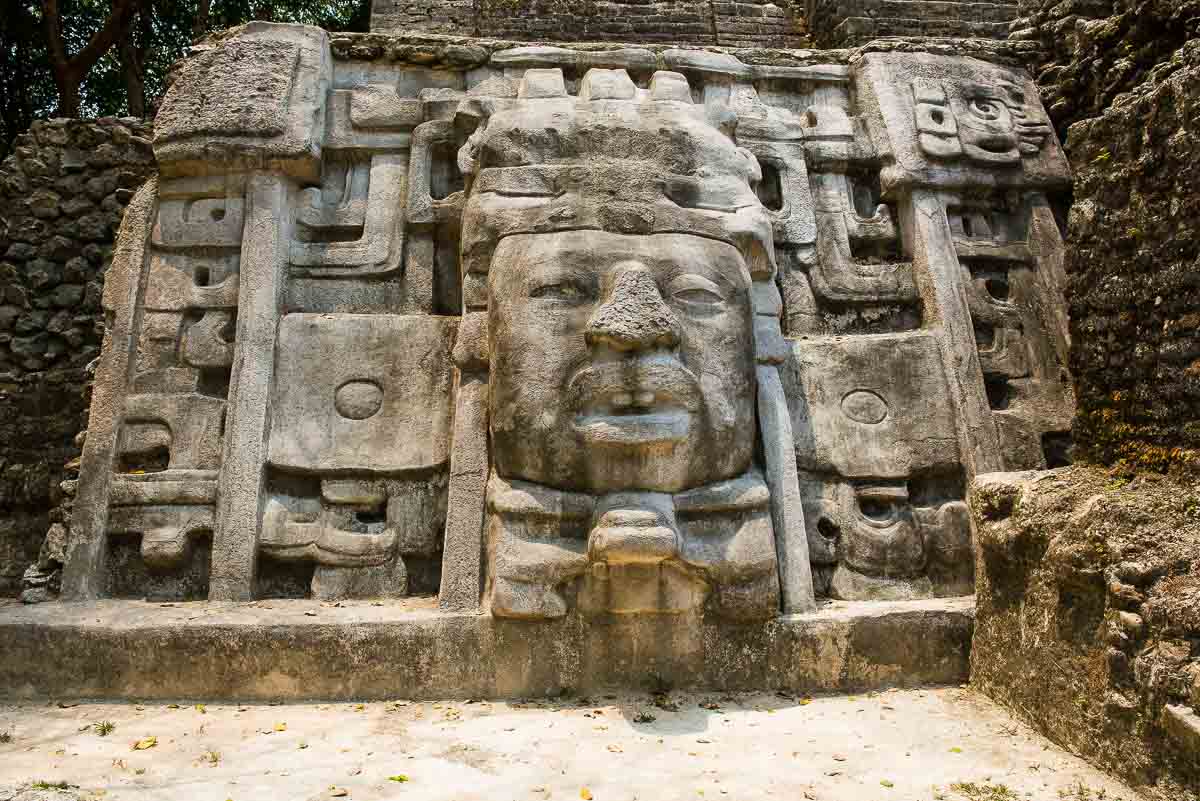
A few of the temples at Lamanai sported large masks on their facades, the first time we've seen this on Mayan ruins. Here, the mask had been walled over by subsequent generations of Mayans, and archeologists discovered this, and another like it on the other side of the stairs, when they began to restore the site. There are other masks behind other walls that have not been uncovered, but have been discovered by electronic means. To preserve these masks from the encroaching jungle and weather, they have been covered by fiberglass in the exact shape and color of what's underneath, which is probably not a terrible idea.
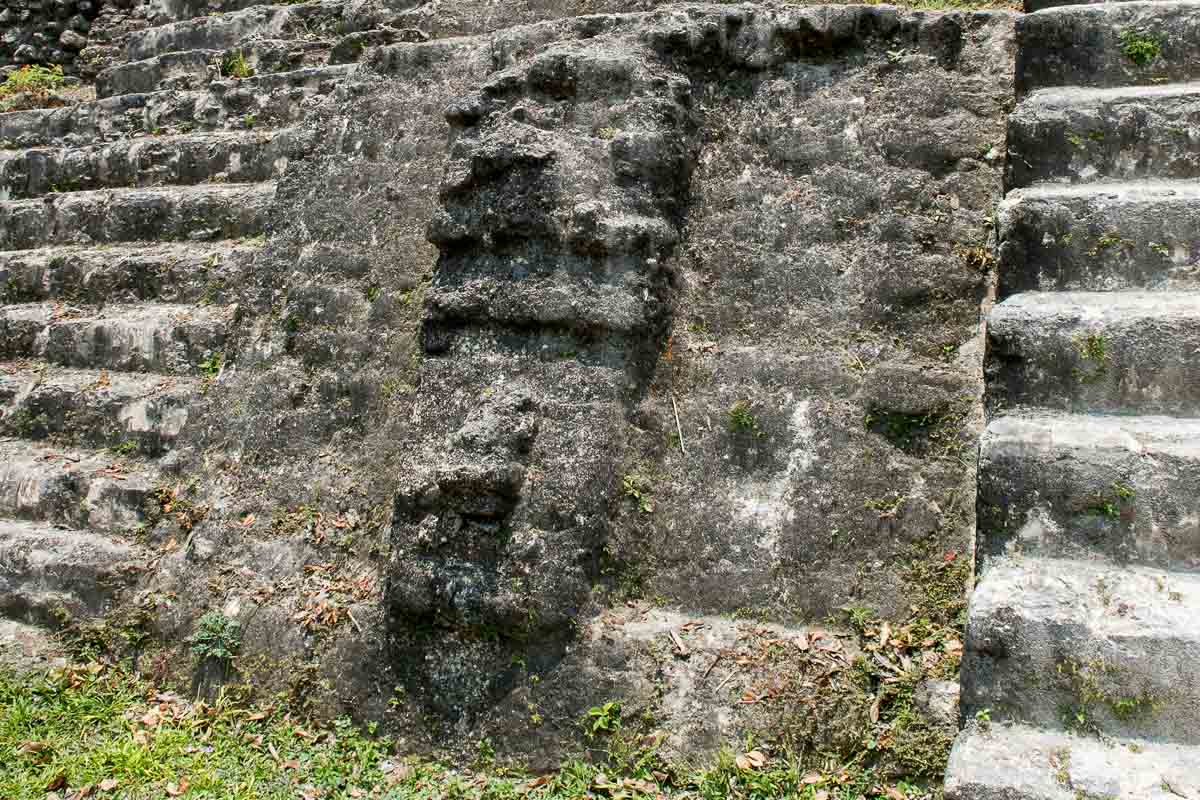
Belize, we were told by our guide, has no organized preservation effort going on their Mayan sites. When I asked him why the government wasn't currently working to preserve and restore the sites to promote tourism, he laughed a bit, then shrugged.
The provided lunch (chicken, rice, salad, vegetables, hot sauce) tasted fantastic, perhaps the best meal we had in Belize. Chatting with our boat mates, we learned Veronica and Carlos from Orlando were on their honeymoon. Ray and Claudette from Southern California advised us not to miss the ATM cave. Both couples had been experiencing the coast and keys of Belize while we were in the interior, being eaten by mosquitoes.
After the tour and lunch, it was full steam ahead. Carlos raced back with daring, hydroplaning turns through the narrow curves of the river, dodging overhanging branches, slowing for fishermen in boats or on the shore, and delivering us safely back to the landing. Our door-to-door time was about seven hours, and the cost including entrance fees, transport and everything was $130 per person.
We love traveling–with the right gear. We've gathered a lot of the stuff we use to make travel more pleasant and efficient all on one page. Shop our Travel Past 50 Amazon page to find our favorite gear. If you purchase something from the store, Travel Past 50, as an Amazon affiliate, may receive a small commission at no extra charge to you. Thanks.
We never leave home without our travel insurance. Nor should you. Search for the travel insurance from Allianz that best meets your needs, whether it be an annual plan or a single trip.
You can see (and buy prints) of most of our travel photos in one place on this page.
Note: This post and other posts on TravelPast50.com may contain paid or affiliate advertising links.
Up Your Travel Skills
Looking to book your next trip? Use these resources that are tried and tested by us. First, to get our best travel tips, sign up for our email newsletter. Then, be sure to start your reading with our Resources Page where we highlight all the great travel companies and products that we trust. Travel Accessories: Check out our list of all the accessories we carry to make getting there and being there a lot easier. Credit Cards: See our detailed post on how to choose the right travel rewards credit card for you. Flights: Start finding the very best flight deals by subscribing to Thrifty Traveler. Book your Hotel: Find the best prices on hotels with Booking.com. See all of the gear and books we like in one place on our Amazon shop.Got a comment on this post? Join the conversation on Facebook, Instagram, or Threads and share your thoughts!

